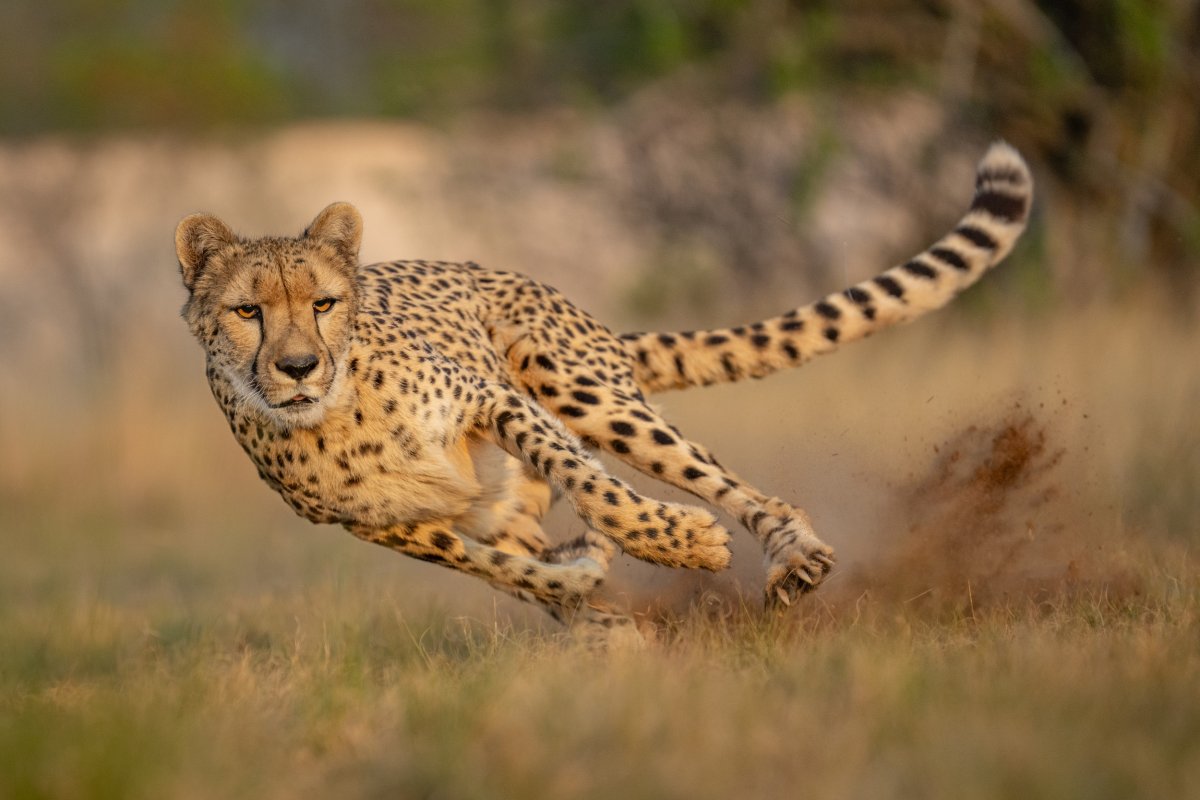Scientists have discovered a sweet spot in animals that explains why fast moving animals like the cheetah can reach such high speeds.
Animals that can run fast, such as the cheetah, tend to be medium sized. And an international team of researchers from Imperial, Harvard University, the University of Queensland and the University of the Sunshine Coast set out to find out why. Their findings are published in the journal Nature Communications.
To reach their findings, scientists developed a model that demonstrated how an animal's muscles move when on land, then assessed the constrains in how fast they can run.

"The fastest animals are neither large elephants nor tiny ants, but intermediately sized, like cheetahs. Why does running speed break with the regular patterns that govern most other aspects of animal anatomy and performance?" lead author Dr. David Labonte, from Imperial College London's Department of Bioengineering, said in a summary of the findings.
They discovered that there is not just one limit to how fast an animal can run, rather, there are two—this is how fast and by how far their muscles can contract, the study reports.
And, maximum running speed is determined by what limit they meet first. This limit is determined by the animal's overall size, the study adds.
The first limit, dubbed the "kinetic energy capacity limit," refers to how smaller animals have muscles that are restrained by how quickly they contract. Whereas the second limit, dubbed "work capacity limit," refers to how larger animals are restrained by how far their muscles contract.
"The key to our model is understanding that maximum running speed is constrained both by how fast muscles contract, as well as by how much they can shorten during a contraction," co-author Professor Christofer Clemente, from University of the Sunshine Coast and University of Queensland, said in the summary. "Animals about the size of a cheetah exist in a physical sweet spot at around 50kg, where these two limits coincide. These animals are consequently the fastest, reaching speeds of up to 65 miles per hour."
When testing the model's accuracy, researchers found that it correctly predicted maximum running speeds across various animals from large mammals, birds and lizards.
The model doesn't just answer questions into how certain animals can run faster than others, it also sheds light on how muscles evolved. It also provides clues into why there are large differences between certain animal groups. For example, why large reptiles such as crocodiles are slower than large mammals.
Another co-author, Taylor Dick, from the University of Queensland, said that this could be explained by the fact that limb muscles are a smaller percentage of a reptile's body. This means they have to hit the work limit at a smaller body weight, "and thus have to remain small to move quickly," she said.
"For large animals like rhinos or elephants, running might feel like lifting an enormous weight, because their muscles are relatively weaker and gravity demands a larger cost. As a result of both, animals eventually have to slow down as they get bigger," co-author Dr. Peter Bishop, from Harvard University, said.
This research also suggested that land animals that weighed more than 40 tonnes would be completely unable to move. This raises questions about dinosaurs, as there were some species such the Patagotitan that probably weighed more than this. The heaviest land animal alive today is the African elephant at 6.6. tonnes, the study reported.
"Our study raises lots of interesting questions about the muscle physiology of both extinct animals and those that are alive today, including human athletes," Labonte said. "Physical constraints affect swimming and flying animals as much as running animals—and unlocking these limits is next on our agenda."
Do you have a tip on a science story that Newsweek should be covering? Do you have a question about this study? Let us know via science@newsweek.com.
Uncommon Knowledge
Newsweek is committed to challenging conventional wisdom and finding connections in the search for common ground.
Newsweek is committed to challenging conventional wisdom and finding connections in the search for common ground.
Scientists Discover Why Cheetahs Are So Fast - Animals - Newsweek
Read More
No comments:
Post a Comment